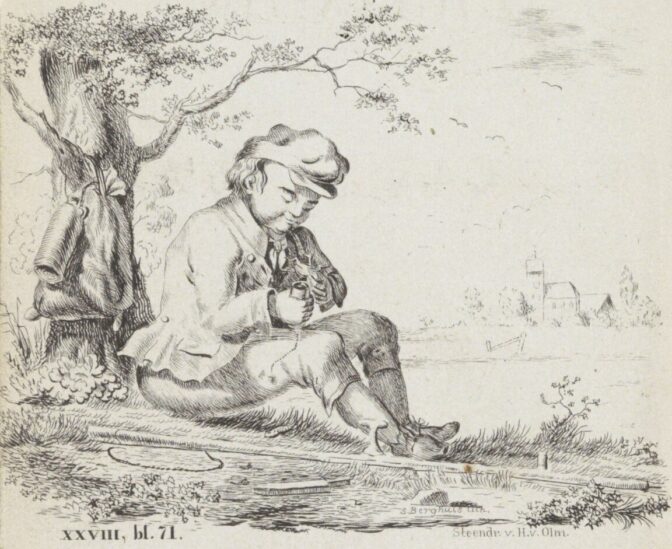This week’s term isn’t Dutch at all, it’s German. Hollandgänger literally means Holland-goer. It’s a German term to describe seasonal workers who would come to the Netherlands to work.
They’d walk to the Netherlands in spring, work here all summer, and then return to their families in Germany in the autumn. Most of these people were poor farm laborers from Westphalia, Münsterland, Osnabrück, or East-Friesland.
Some of these workers met their partners in the Netherlands and stayed here. Most Dutch people have German ancestors somewhere in their trees.

Seasonal worker resting, 1840s. Credits: Sybolt Berghuis, collection Rijksmuseum (public domain).


This must have been pretty successful – This fellow looks very well nourished!! Thanks for these snippets of information – love to read them!
I have ancestors Anna Maria von Pappenheim, born in 1722, Borken, Rhine Westphalia, who married Ernst Lodewijk Brust, 1723, Darmstadt, Hesse, Prussia, and came to Sappemeer around 1750. Their first daughter was baptized at St. Remigius Church in Borken, so they were not likely Anabaptists, like my other ancestors at Sappemeer. I wondered why they moved to Sappemeer. You may have answered my question! Thanks for sharing.
My 8th Great- Grandfather, Johannes Casparus Steynmets (1585-1638) must have been a Hollandgänger.
He came to Holland as a “Stonemason,” building cathedrals. His son, Casparus Johannes Steynmets )my 7th Great- Grandfather, emigrated to New Amsterdam in 1630.
I’ve seen him in records while researching other New Netherland families!
Yes, Yvette, I have as well and I have been to the Netherlands several times doing my early family research. The Archives there are wonderful.
Loads of Hollandgängers in my family. Absolutely true, I very nearly have more cousins in the Netherlands than I do in Westfalen where the family estate still is after more than four centuries living on the same land.